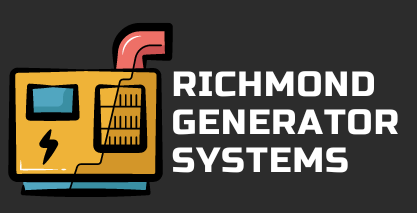
Whole House Generators in Windsor Farms VA
A whole house generator is a powerful system designed to provide backup electricity to your entire home during power outages. Unlike portable generators, which are typically used for short-term power needs and only cover specific appliances, a whole house generator is permanently installed and automatically takes over your home's electrical needs when the power goes out.
There are primarily two types of whole house generators: standby and portable. Standby generators are permanently installed outside your home and connected directly to your home's electrical system. They automatically start when they detect a power outage and can run on various fuel sources, such as natural gas or propane. Portable generators are more versatile but require manual setup and fuel refilling. They are less convenient for whole-house backup but can be used for specific needs.
What We Offer
We specialize in providing high-quality
whole house generators in Windsor Farms, VA tailored to meet your needs. Our range includes top brands and models known for their reliability and efficiency. We offer comprehensive services that encompass everything from helping you choose the right generator to professional installation and ongoing maintenance. Our team ensures that you receive a generator that fits your home's power requirements and provides peace of mind during outages.
- Residential Generators
- Commercial Generators
- Portable Generators
- Electric Generators
- Propane Generators
- Solar Generators
- Generator Repairs
- Generator Maintenance
- Generator Parts

We will get back to you as soon as possible.
Please try again later.
How Do They Work?
Whole house generators are designed to seamlessly integrate with your home’s electrical system. When the generator detects a power outage through an automatic transfer switch, it starts up and begins generating electricity. This process typically takes a few seconds, during which time your home will be powered by the generator, keeping essential systems like heating, cooling, and refrigeration running smoothly. The generator will continue to supply power until the main utility power is restored.
Fuel Sources
Whole house generators can operate on several types of fuel, each with its advantages. The most common fuel sources include natural gas, propane, and diesel. Natural gas is often preferred due to its convenience and constant supply through existing pipelines. Propane is another popular choice, especially in areas without natural gas infrastructure, as it is stored in tanks and can be easily replenished. Diesel generators are known for their durability and are suitable for long-term or high-demand applications, although they may require more maintenance and have higher operational costs.
Installation Steps, Testing, and Commissioning
Installing a whole house generator involves several key steps. First, our team conducts a thorough site assessment to determine the best location for the generator and ensure it meets local codes and regulations. Next, we install the generator and transfer switch, connecting them to your home’s electrical system. Once the installation is complete, we perform comprehensive testing to ensure that the generator operates correctly and efficiently. This testing phase includes simulating a power outage to verify that the generator starts up and powers your home as expected. After successful testing, we commission the generator, ensuring that it is ready for use and providing you with detailed instructions on how to operate and maintain it.
Regular Maintenance Tasks
To ensure the longevity and reliability of your whole house generator, regular maintenance is crucial. Maintenance tasks typically include checking and replacing oil, inspecting and cleaning air filters, and testing the battery. It’s also important to exercise the generator regularly by running it for a short period to ensure it remains in good working condition. Scheduling annual professional inspections can help catch any potential issues early and keep your generator running smoothly when you need it most.
Diagnosing and Addressing Common Problems
Whole house generators are robust systems, but like any machinery, they can experience issues. Common problems include failure to start, irregular power output, and issues with the fuel supply. If your generator fails to start, it may be due to a drained battery or a problem with the fuel system. Irregular power output can be caused by a malfunctioning transfer switch or issues with the generator’s load capacity. Addressing these problems involves troubleshooting the specific issue, which may include checking connections, inspecting the fuel supply, and consulting with a professional if necessary.
Considerations When Choosing a Whole House Generator
Selecting the right whole house generator involves several considerations. First, you need to determine the power capacity required to meet your home’s needs. This involves calculating the total wattage of all essential appliances and systems you wish to keep running during an outage. Other factors include the type of fuel available in your area, the generator’s noise level, and its physical size and placement. It’s also important to consider the generator’s brand reputation and warranty to ensure long-term reliability and support.
Importance of Having a Reliable Backup Power Source
Having a reliable backup power source is essential for maintaining comfort and safety during power outages. A whole house generator ensures that you are not left in the dark and that your home’s critical systems remain operational. This is especially important for homes with medical equipment, families with young children, or during severe weather events. A generator provides peace of mind by ensuring that you are prepared for unexpected power disruptions, safeguarding your home and family.
Common FAQs
Q: How often should I have my generator serviced?
A: It is recommended to have your generator serviced at least once a year by a professional to ensure it is in good working condition.
Q: Can I install a generator myself?
A: While it is possible to install a generator yourself, it is highly recommended to have it professionally installed to ensure safety and compliance with local codes.
Q: What size generator do I need?
A: The size of the generator you need depends on the total wattage required by the appliances and systems you wish to power. A professional assessment can help determine the appropriate size.
Q: How long can a whole house generator run?
A: The run time of a whole house generator depends on its fuel source and capacity. Generators running on natural gas or propane can typically run as long as needed, provided there is a fuel supply.
Q: What should I do if my generator is not working properly?
A: If your generator is not working properly, check the basic components like fuel levels and battery connections. For more complex issues, contact a professional technician for diagnosis and repair.
If you’re considering a whole house generator for your home in Windsor Farms, VA, or need assistance with installation, maintenance, or repairs, don’t hesitate to reach out to us. Our team of experts is ready to provide you with the best solutions to ensure your home is always prepared for any power interruptions. Contact us today to discuss your needs and schedule a consultation.
Let's Connect!
Looking for reliable power solutions? Look no further than us! Our expert team is here to help you understand how whole house generators work and why they're essential. Don't get caught in the dark! Check out our buyer's guide and discover the reasons for the loss of power. Contact us today for a consultation!